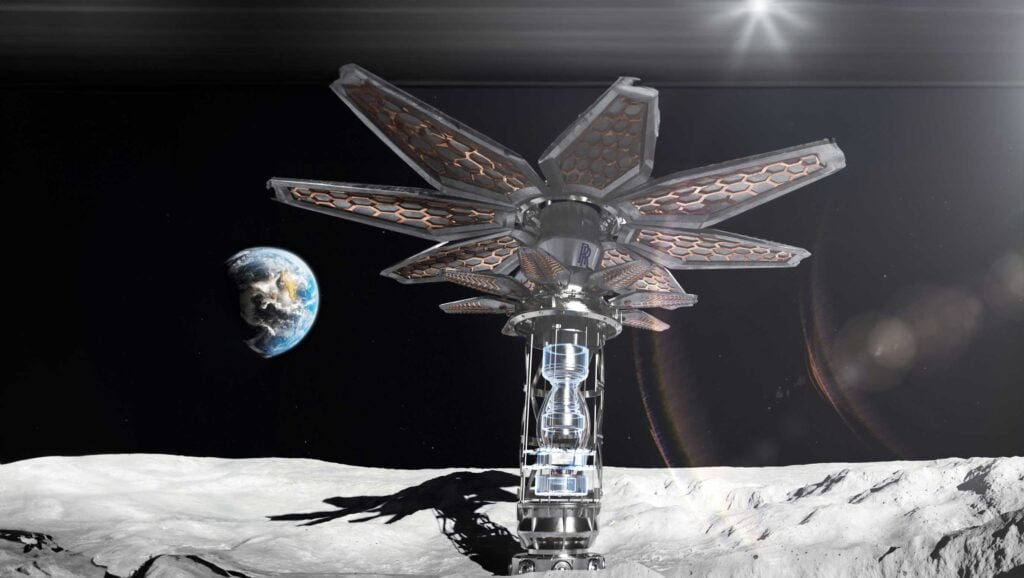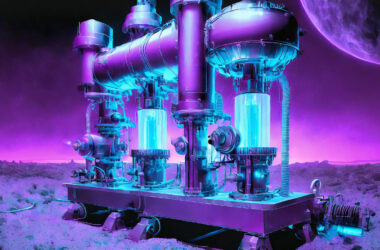As we set our sights on the Moon, the need for sustainable and reliable energy sources is becoming increasingly important. The NASA-led Artemis Programme underscores the importance of establishing a foothold on the lunar surface. But to truly thrive and conduct meaningful scientific research on the Moon, we need more than just ambition; we need practical engineering solutions to provide astronauts with the energy they need to survive. Enter the compact nuclear fuel cell, a groundbreaking development that might revolutionize lunar exploration and habitation.
In picturesque north Wales, researchers at Bangor University have been diligently working on a solution that could be the linchpin for sustained life on the Moon.

Their creation, aptly named Trisofuel, harnesses the power of nuclear fuel cells. For the punch they pack, each is astonishingly small – only the size of a car and big enough to ship to the Moon on a rocket. However, each can generate the energy required for future lunar habitats.
This innovative tech came about in collaboration with Rolls Royce. The team sought to develop a reliable energy source tailored for extended stays on the Moon.
The micronuclear generator is compact, roughly the size of a small car, but incredibly robust. The implications of Trisofuel extend beyond just power generation. It represents a fusion of cutting-edge technology and sustainability, ensuring our lunar endeavours are efficient and environmentally conscious.
The Potential of Nuclear Power in Space
Space exploration, while exhilarating, presents a myriad of challenges. One of the most pressing is the transportation of power sources to the vastness of space. While effective on Earth, traditional energy solutions may only sometimes be feasible for the unique conditions of outer space.

This is where nuclear power, with its compactness and efficiency, shines.
Nuclear power, especially in the form of the innovative Trisofuel cells, offers a solution to the energy problems of space missions.
Despite their size, these cells can generate substantial energy, making them ideal for the demanding conditions of lunar habitats.
Professor Simon Middleburgh, from the Nuclear Futures Institute, aptly summarized the essence of this innovation, stating that in environments like the Moon, where reliance on solar energy is not always feasible, systems like the micro-reactor become indispensable for sustaining life.
Space is now becoming a realm of economic opportunity and geopolitical significance. The Moon, with its untapped resources and strategic position, is at the centre of this new space race. As nations around the globe ramp up their lunar exploration efforts, innovations like Trisofuel are not just technologically interesting but increasingly seen as strategic assets.
With its space economy valued at £16bn, the UK stands to benefit immensely from advancements in nuclear space power. The development and deployment of such technologies could lead to the creation of skilled job opportunities, fostering economic growth and solidifying the nation’s position as a leader in space exploration.
Establishing a presence on the Moon isn’t just about exploration; it’s about influence. As nations plant their flags and set up bases, the need for updated space laws becomes evident. The Moon could become a hub of international cooperation or a point of contention, depending on how nations navigate these uncharted territories.
As we look to the future, it’s clear that our journey to the Moon is just beginning. The possibilities are boundless with the fusion of science, engineering, and vision.
TLDR (Too Long Didn’t Read):
- Bangor University introduced Trisofuel, a compact nuclear fuel cell technology.
- Collaboration with Rolls Royce results in a micronuclear generator for lunar habitats.
- Nuclear power offers a sustainable and efficient solution for extended space missions.
- The UK’s burgeoning space economy stands to benefit from atomic space power.
- The Moon is a focal point for economic opportunity, geopolitical influence, and scientific exploration.







